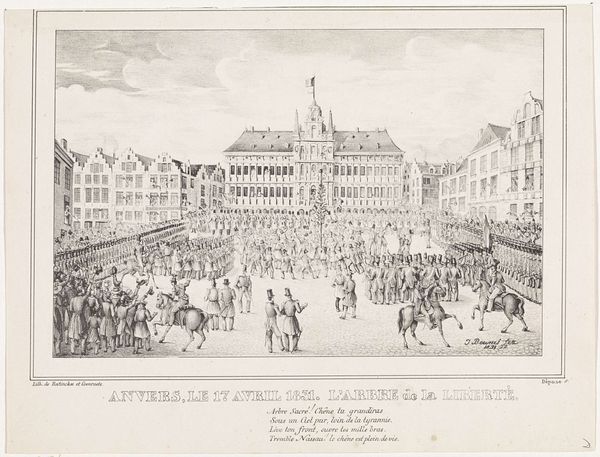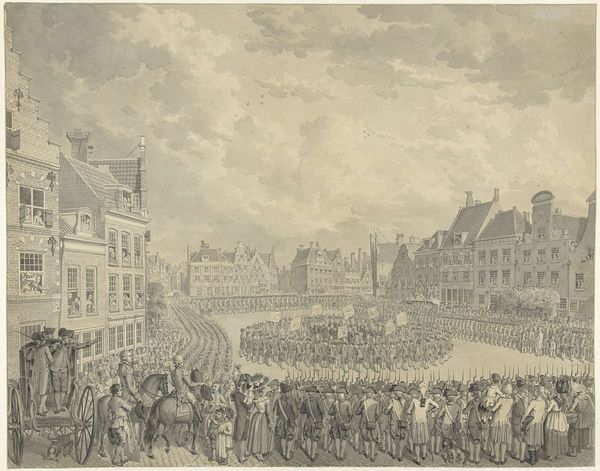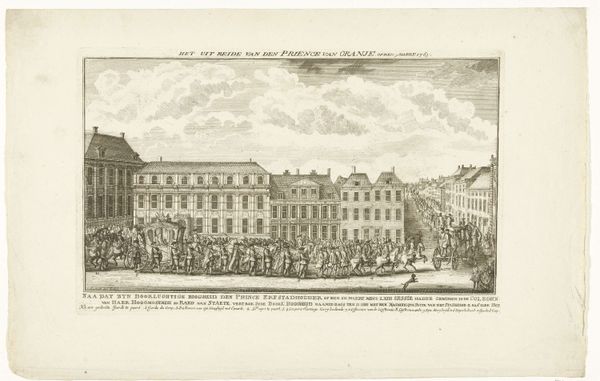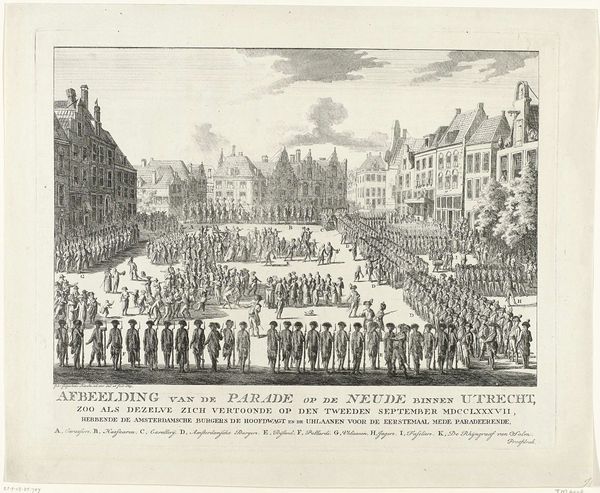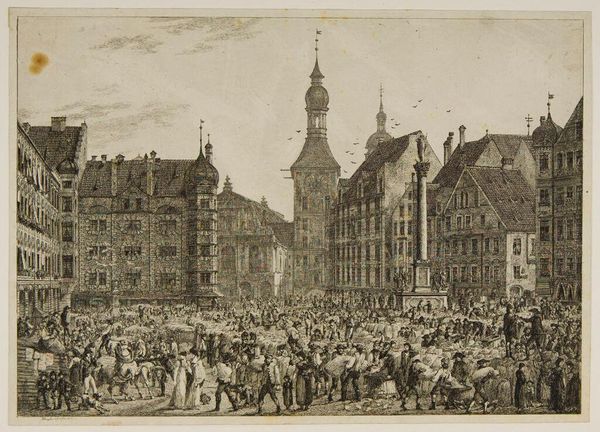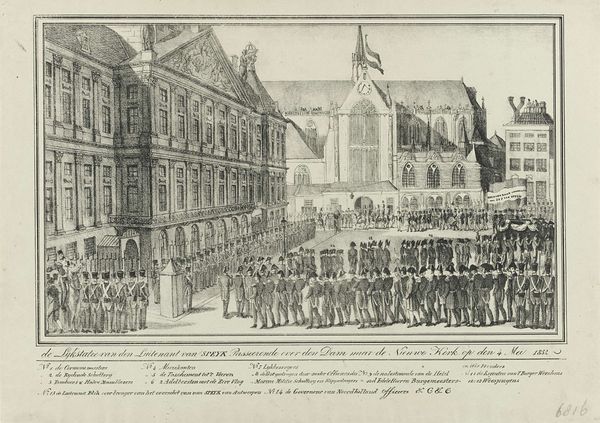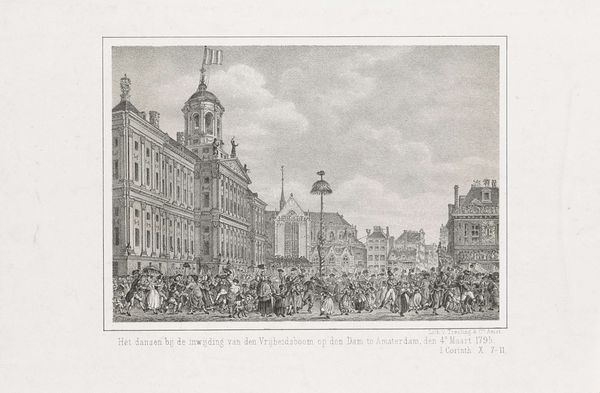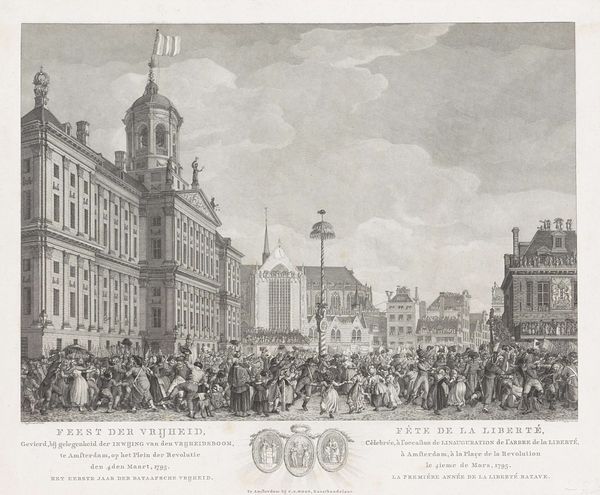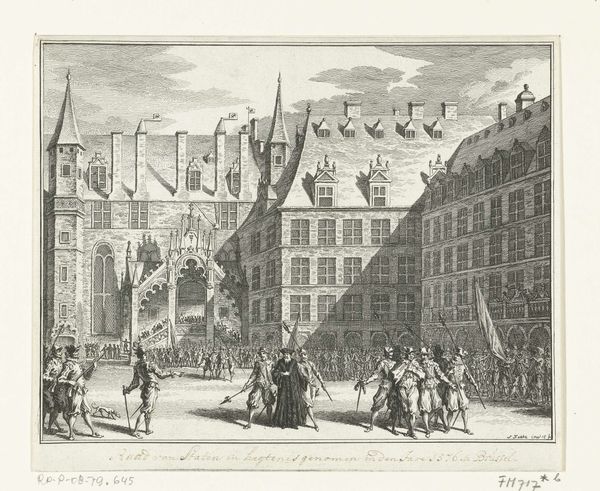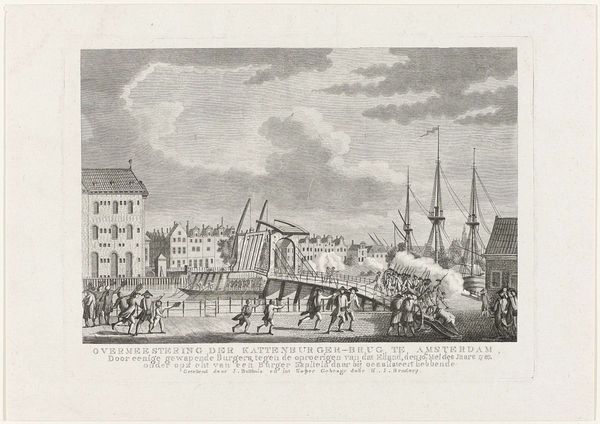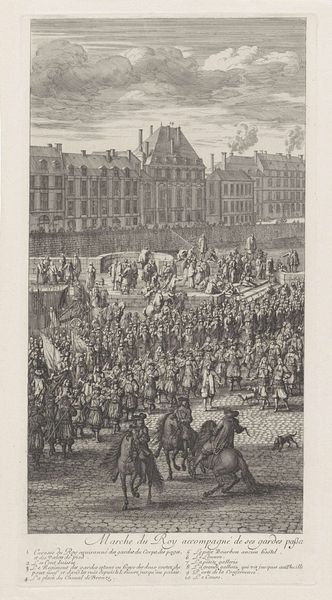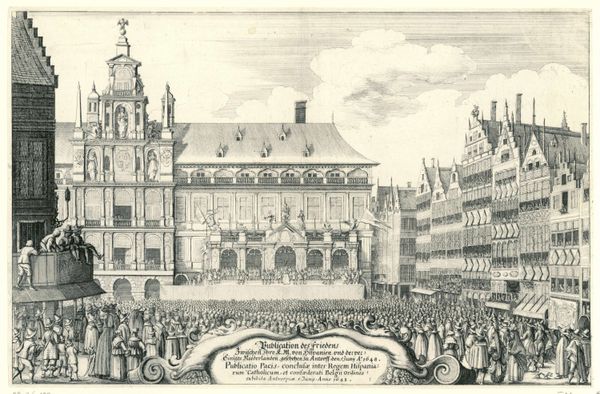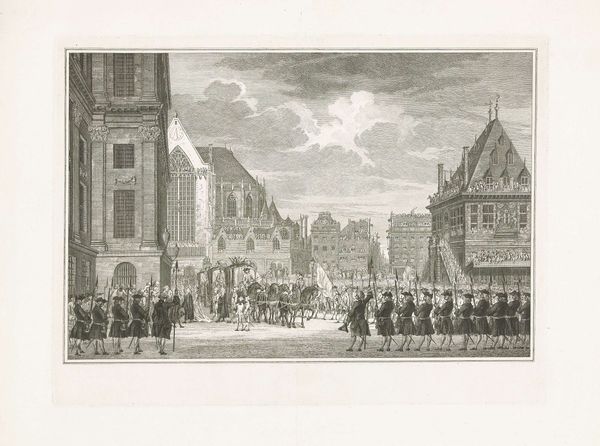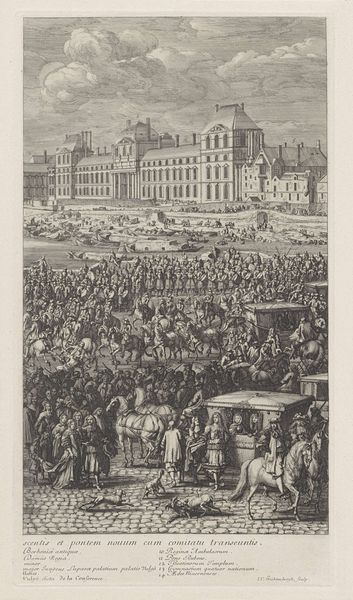
print, etching, engraving
# print
#
etching
#
old engraving style
#
romanticism
#
cityscape
#
history-painting
#
engraving
#
realism
Dimensions: height 252 mm, width 337 mm
Copyright: Rijks Museum: Open Domain
Johannes Beunis made this lithograph, titled “Freedom Tree in Antwerp, 1831,” in the midst of the Belgian Revolution. It depicts the planting of a liberty tree on April 17th, 1831 in the city’s main square. The planting of liberty trees was a tradition begun during the French Revolution. As symbols of republicanism, they were often planted to commemorate the achievement of liberty from despotic rule. The events of the Belgian Revolution, beginning in 1830, saw the southern provinces of the Netherlands secede and form an independent Kingdom of Belgium. In this print, we see the new nation’s army proudly standing in formation around the tree, the town hall adorned with the Belgian flag in the background. What might seem like a straightforward depiction of national pride becomes far more complex once one considers the place of revolutionary imagery in establishing the modern nation-state. To better understand, a historian might look at how revolutionary imagery was disseminated and what kinds of social groups were involved in the planting of liberty trees. The meaning of art changes according to social and institutional contexts.
Comments
No comments
Be the first to comment and join the conversation on the ultimate creative platform.
